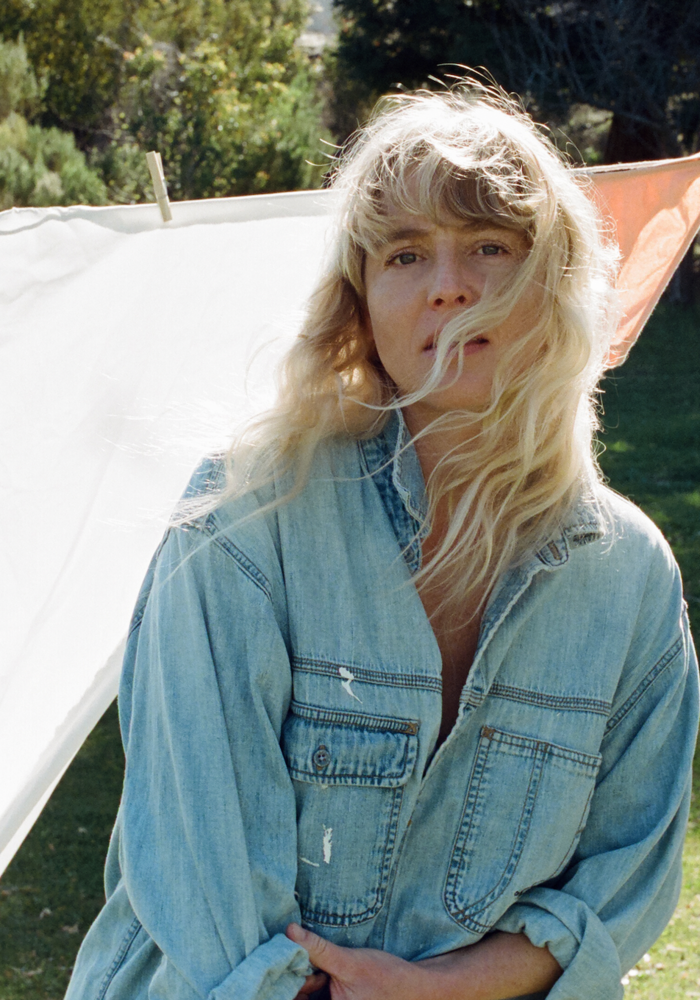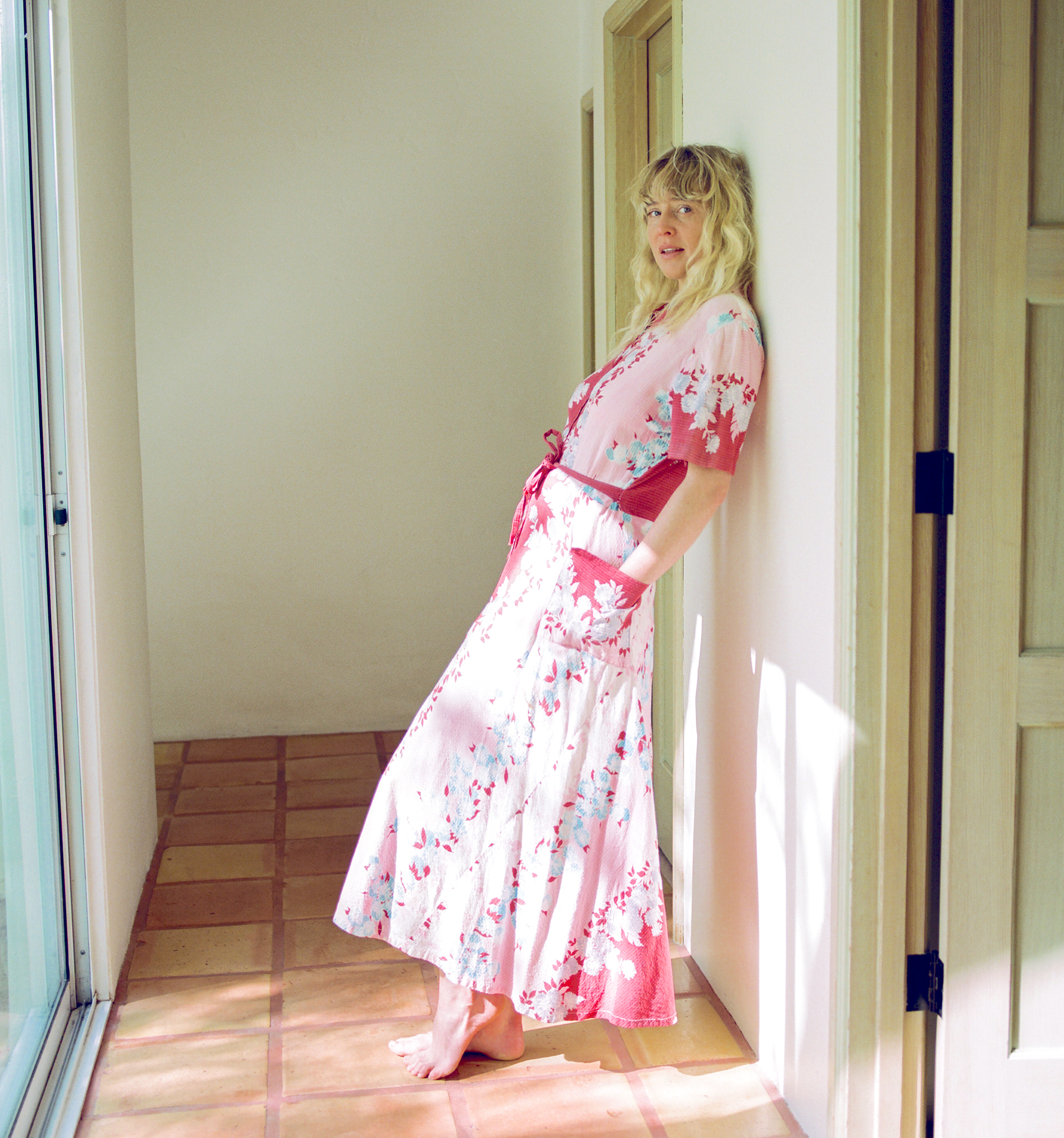US singer songwriter Lissie joins Headliner for an in-depth chat about the personal challenges she had to overcome to make her new album Carving Canyons, the magic of working in Nashville, and how she wound up performing on David Lynch’s Twin Peaks…
We find Lissie tucked away in the lounge of her Virginia home, taking shelter from a storm that is currently raging across her sprawling 45-acre farm. The cosy interior and comfy surroundings, not to mention her warm, talkative manner, offer no hint at the conditions outside. “This is such a busy time of year in terms of gardening, growing vegetables, watering the trees and flowers, and just taking care of the earth the best I can,” she says with a smile. “It’s a fun but busy time, but at the moment it’s crazy awesome thunder and lighting, which is perfect as I’m inside today.”
From the moment Headliner joins Lissie over Zoom, she is immediately engaging and entertaining company, happy to discuss everything from the workings of the vast farm she currently lives on, to the isolation and grief she felt following a messy breakup at the start of the pandemic, and of course, her new album Carving Canyons.
The follow-up to her last studio album, 2018’s Castles, Carving Canyons marks a change of direction from its predecessor. While Castles was largely built on a foundation of electronic and piano infused pop, Carving Canyons leans into more traditional country and folk-pop territory. Written primarily in Nashville, in collaboration with producer Curt Schneider (Patty Smyth, Lucero), and a handful of local songwriters, it’s easy to see why the record evolved as such. And as Lissie explains, a change of scenery was vital, given the circumstances that preceded the initial writing sessions for the record.
“After releasing the last album I was touring a lot and I put out a collection of piano versions of some of my songs,” she recalls. “Then there was the pandemic and there was just a lot of intensity in the world. The time just flew by, and I hadn’t really thought about making a new album. And in May 2020 a relationship I had been in for a couple of years ended. Things were feeling so chaotic, politically and with the pandemic, and I was pretty isolated, so it took me some time to start writing.
“For the first six months or so of the pandemic it was like, where do you even start to say anything? There was so much to process, and I think we are still processing it. But then in November of 2020, after spending the summer going through this cycle of trying to grow stronger as a human and have more acceptance about things, I felt this arc of grieving, not only the relationship, but also the process of moving through all these feelings. It was then that I started writing in Nashville with some great songwriters. And in February of 2021 I went to LA and started recording the album in three song chunks. I’d go home, do some more writing, then go back to LA in April and then in June. This album was really unique to make for me because it was the first time I have made an album over the course of a year. And a lot changed for me emotionally over that year. It’s been interesting to see things from the other side of something that was so rough.”
Having navigated the initial trauma of the loss of her relationship and Covid-imposed isolation, Lissie eventually found comfort in songwriting. It also helped her to reflect and process the extremity of what she had endured.
“It was absolutely therapeutic,” she says thoughtfully before pausing. “In November 2020 I was doing better but I still felt a lot of hurt and anger and sadness. I didn’t feel like I had closure at that point. Not to go into detail, because I’m over it now, but I had been with someone for a couple of years, living together, and then the pandemic started… He ended up leaving me for someone he was working with. It was so shocking, and then to not be able to work or see my family or hug anybody… I was really unwell. It was almost a little scary how much I was struggling.
“That being said, I’m doing a lot better now,” she says with a laugh and a smile that instantly breaks the pensive tone that had crept into her voice. “I funnelled all of that into those early songs, then as time went on, I wasn’t quite so upset. That’s probably why I make music. These are universal experiences. Other people have been hurt and betrayed, so hopefully my music can help other people who have been through it, because when you’re in it you feel like you are the only person who has ever felt that bad. But it gets better. Music really did help me keep on keeping on and stay focused on what was coming on the horizon.”
The sense of hope she speaks of can be heard throughout Carving Canyons. Despite the events that informed its creation, there is a warmth that radiates across each of its tracks, distinguishing it from the typical ‘breakup album’ mould. However, this aspect of the record, Lissie says, was not the result of a conscious attempt to offset the subject matter with a lighter sonic backdrop, but something that arose organically in the studio.
“I wish I could tell you I was very clever about it all,” she says with a laugh. “I have been working with [producer] Curt Schneider for a long time and we do a lot of talking. I might talk about my life, he talks about his life, then he brings in these great musicians. We’d have these really good hangs. There was a great dynamic and I was able to talk to them about what I had been going through. I want my songs to be able to go to dark places, but there is always hope there.”
Lissie and Schneider’s relationship can be traced back to 2007, when the pair worked together on her breakthrough UK single Everywhere I Go, which remains one of her favourite songs to this day. Since then, he has, she explains, continued to play a pivotal role in her career, both on a musical and a personal level.




